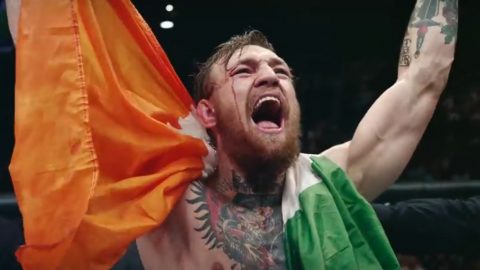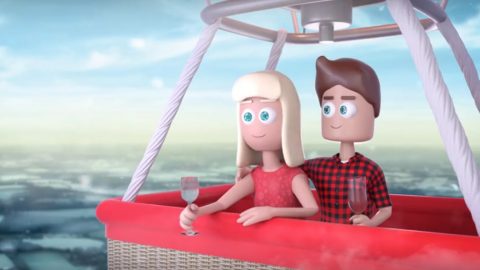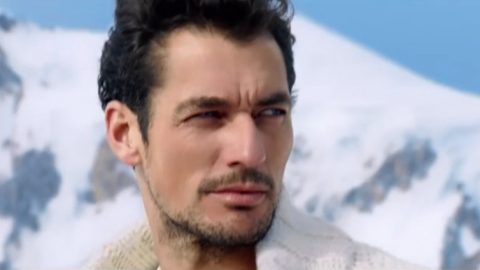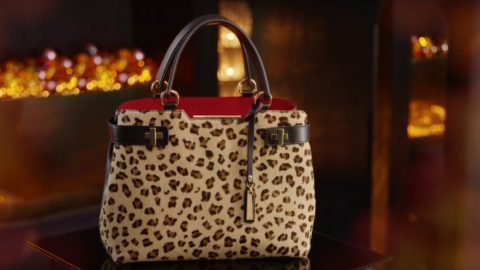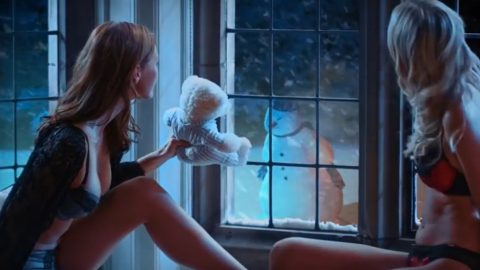Screamin’ Jay Hawkins? Now there’s a name to conjure with.
Born in Cleveland Ohio in 1929, young Jay grew up wanting to be an opera singer like his statuesque hero Paul Robeson before discovering the jazz and R’n’B which would lead him down the road to hell!
Variously dubbed ‘the black Vincent Price’ and ‘the godfather of shock rock’, pianist and guitar player Hawkins made himself over into a master of the macabre and would later cast a long shadow over the careers of artists like Ozzy Osbourne, Alice Cooper and Marilyn Manson – not to mention the same Lord David ‘Third Earl Of Harrow’ Sutch who stole his soubriquet and much of his act to become a minor star in the UK during the early 1960s.
Of course, anybody can be carried on stage in a coffin and emerge smeared with ketchup under cover of a smoke bomb or two. But few have ever been able to capture voodoo on vinyl in quite the way that Hawkins did with his one and only real hit I Put A Spell On You in 1957 – the track which is currently doing the rounds in a Suzuki Swift ad about a man who suspects that he’s being stalked by a motor car!
Ranked among the Top 500 most influential rock songs of all time by Rolling Stone magazine and released on the CBS (now Sony Music) subsidiary Okeh, Hawkins’ demonic version of I Put A Spell On You is estimated to have sold a million copies in the USA without ever once crossing over into the Billboard pop charts.
Which shouldn’t come as much of a surprise given that, back in the day, most respectable, God-fearing white radio station programmers would have refused to give airtime to a single with quite such an obviously lewd and lascivious lead vocal – let alone one with the rawest of backing tracks consisting of little more than a rudimentary waltz time saxophone figure and some vamping 6/8 piano.
But, just to prove that there is some justice in the world, I Put A Spell On You rapidly became a rock and pop standard thanks to a string of successful covers by a veritable Who’s Who of huge names like Nina Simone, Ray Charles, Alan Price, Creedence Clearwater Revival, Joe Cocker, Brian Ferry and Sonique. Most recently Jeff Beck and Joss Stone performed it at the 53rd Grammy Awards ceremony more than ten years after Hawkins’ death following an aneurysm in 2000.
Indeed such was the esteem in which this giant of a man was held by successive generations of rock’n’roll tastemakers that he toured with The Clash and Nick Cave and was cast as an maniacal janitor in Jim Jarmusch’s 1989 cult movie Mystery Train.
By comparison the Four Seasons’ Bob Gaudio cuts a less charismatic figure. But in songwriting circles he is a tower of strength who remains one of the biggest names to come out of the early 1960s, Brill Building era. In conjunction with producer Bob Crewe, he was responsible for all those classic vocal group smashes like Sherry, Big Girls Don’t Cry, Rag Doll, Beggin’ and Silence Is Golden which made a star out of Frankie Valli and became the bedrock of the Broadway musical Jersey Boys. And if that wasn’t enough he penned The Sun Ain’t Gonna Shine Anymore for The Walker Brothers and You Don’t Bring Me Flowers for Barbra Streisand too.
Some talent, and one which revealed itself at a very early age. In the summer of 1957 Gaudio was just 15 and playing piano with a New Jersey high school band called The Royals when he and drummer Tom Austin wrote the novelty number Short Shorts about the latest fashion craze among local girls for cut-off jeans.
On the advice of producer Leo Rogers they added a girl singer Diana Lee, changed the name to The Royal Teens and, duly signed to ABC/Paramount, were soon looking down at the world from Number Three in the US charts. And even though the hits dried up almost immediately, the band remained something of a fixture on DJ/promoter Alan Freed’s much vaunted rock’n’roll package tours where, with a selection of sidemen in tow which included a young Al Kooper, they opened for legends like Buddy Holly, Jerry Lee Lewis, Sam Cook and Chuck Berry.
Nobody could call Short Shorts a classic but it’s one of those silly season songs which never quite go away. Readers of a certain age will remember Freddie and the Dreamers performing it on kids TV in the UK after covering it as a US B side in 1966. Those same readers will doubtless get a thrill, of another kind perhaps, from hearing it underpin a trailer for … er…short dramas on Channel 4.
And talking of seasons, it shouldn’t have escaped notice that The Sun has kicked off its coverage of 2014-15 soccer campaign with a selection of unusually poignant films of fans in tears after their teams have been defeated.
It features the 1976 Top 10 recording by Scots hard rockers Nazareth of Love Hurts, a song originally released on album by The Everly Brothers in 1960 and then as the B side of Roy Orbison’s Running Scared the following year.
Written by Boudleaux Bryant – who, alongside his wife Felice, was credited with By Bye Love, Wake Up Little Susie, All I Have To Do Is Dream and more choice material by Don and Phil – the delicate Love Hurts was perhaps an unusual choice for the Dunfermline band driven by lead singer Dan McCafferty’s scorched-earth vocals and Manny Charlton’s often excoriating slide guitar.
But while the best titles on a score of albums recorded over nearly 30 years showed they could cobble together a good song themselves, Love Hurts and other superlative covers of Joni Mitchell’s This Flight Tonight and Tomorrow’s My White Bicycle, prove that Nazareth’s reputation as fine interpreters of other people’s material still stands up today.
